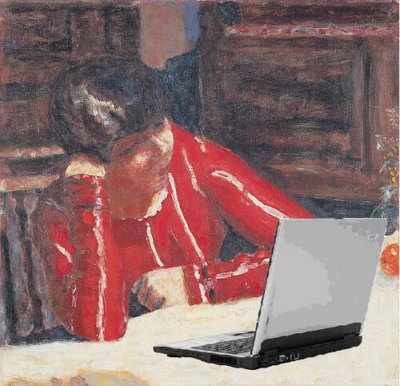Is Online Therapy as Good as Seeing a Therapist In Person?

By: Mike Licht
by Andrea M. Darcy
Want to try counselling or psychotherapy, but putting it off because you are travelling too much with work? Or not sure if there’s a move in your future? With the advent of online therapy, such excuses are now outdated.
Many therapists are now happy to work with you over Zoom, Teams, or another video conferencing software.
So no matter where you might be in the world, an English therapist is only a computer screen away.
But it is online therapy as effective as in-person therapy? Should you really invest the money, and will you get the same results?
Can online therapy really produce the same results as in-person psychotherapy?
In general, research studies on online and online therapy show that:
- significant improvements are possible with online therapy
- results are equal, or in some cases better, to that of in-person therapy
- client satisfaction is high.
Many studies have been done around online counselling in general, which originally was carried out through emails or instant messaging, or ‘e-learning’. The studies found that not only was online counselling effective, but in some cases it was even more so.
For example, a 2009 study led by the University of Bristol looking at the effects of online cognitive behavioural therapy on those who suffered depression found a 43% rate of recovery in participants and one Canadian study even found some subjects had better results with online CBT therapy than in-person CBT.
But what about studies looking at the effect of video therapy in particular? A 2013 Canadian study with a focus exclusively on video counselling vs. in person counselling reported that “video counselling and in-person counselling had similar outcomes in regards to… rate of session helpfulness, pre and post counselling self-assessment, and rate of goal completion.”
As for any worries that you won’t have as good a personal connection with your therapist, a 2014 review carried out in Australia on the subject of client-therapist relationships in video therapy positively confirmed that clients felt at least as bonded with their therapist using video conference as those who had in-person therapy.
Why online therapy can be more effective in some cases

By: Amy
If you have a mental health disorder and therapists who specialise in it are geographically few and far between, online therapy can be the difference between having a practitioner who doesn’t quite understand your condition and getting the bespoke treatment you need.
In other cases, such as for social anxiety disorder, online therapy can reach sufferers who might otherwise not seek help as their very disorder makes the challenge of going to an office an insurmountable challenge. A 2013 study on social anxiety disorder and online therapy followed 24 participants through 12 weeks of Online therapy. Over 90% reported decreased fear and decreased avoidance of social situations, and 95% reported satisfaction with doing their therapy over the internet.
A 3-month followup found these positive results had maintained at a higher rate than studies than previously reported results for the same therapy done in-person.
A study using video conferencing to treat those with obsessive compulsive disorder using exposure therapy also showed good results. Video allowed the therapist to be ‘present’ with clients for a greater variety of ‘exposures’. For example, in the case study the research shares, the therapist could be with a nurse terrified of hurting children not just in her home, but also at her workplace, by using video apps on her mobile phone. Video also allowed the therapist to integrate the client’s family into the therapy.
But doesn’t in-person therapy have benefits online therapy can’t?
There are, of course, some things that online counselling does make more challenging.
A counsellor cannot read all your body language over a monitor. That said, it is still real-time communication, and a well-trained online therapist will know to look for verbal cues, eye contact, and other body clues that are signs of stress or uncertainty, such as how often you look away.
Things like making a diagram or chart together obviously become more challenging. Your therapist can find ways around this, such as scanning and emailing things.
And of course an in person session can’t get disrupted when a connection fails. Although things like fire alarms can happen, they are unlikely.
And if you are the sort who feels comforted by being in another person’s presence, video therapy does not offer the same experience. So it’s a case of going with what works for you.
Is online therapy as safe as in-person therapy?
And with the advanced encryption standard (AES) most video chat platforms now offer, your privacy is protected as much as anything else on the internet. AES is the same encryption the United States government uses to protect sensitive information.
3 Things to keep in mind when trying online therapy
What do you need to know before trying therapy over the internet?
1) Like all kinds of therapy, you are not signing a jail sentence.
If you don’t like the therapy or the therapist, you are the one in charge, you can end it or try something else. So don’t use this excuse to avoid finding the support you need.
2) You don’t need to choose as you can do both!
It’s increasingly normal, especially with the rise of people working over the internet and travelling frequently, to engage in therapy that is sometimes in person, sometimes over the internet. So if online therapy is not a perfect match for your needs, consider trying this new ‘blended approach’.
3) And most of all, remember that some support is better than no support at all.
If you feel that online therapy is really your only option at this time, why not try it? At the very least it can be a starting point into learning more about yourself and finding new strategies for living that lead to greater wellbeing for you.
Would you like to share your experience of online therapy? Do so below, we love hearing from you.




